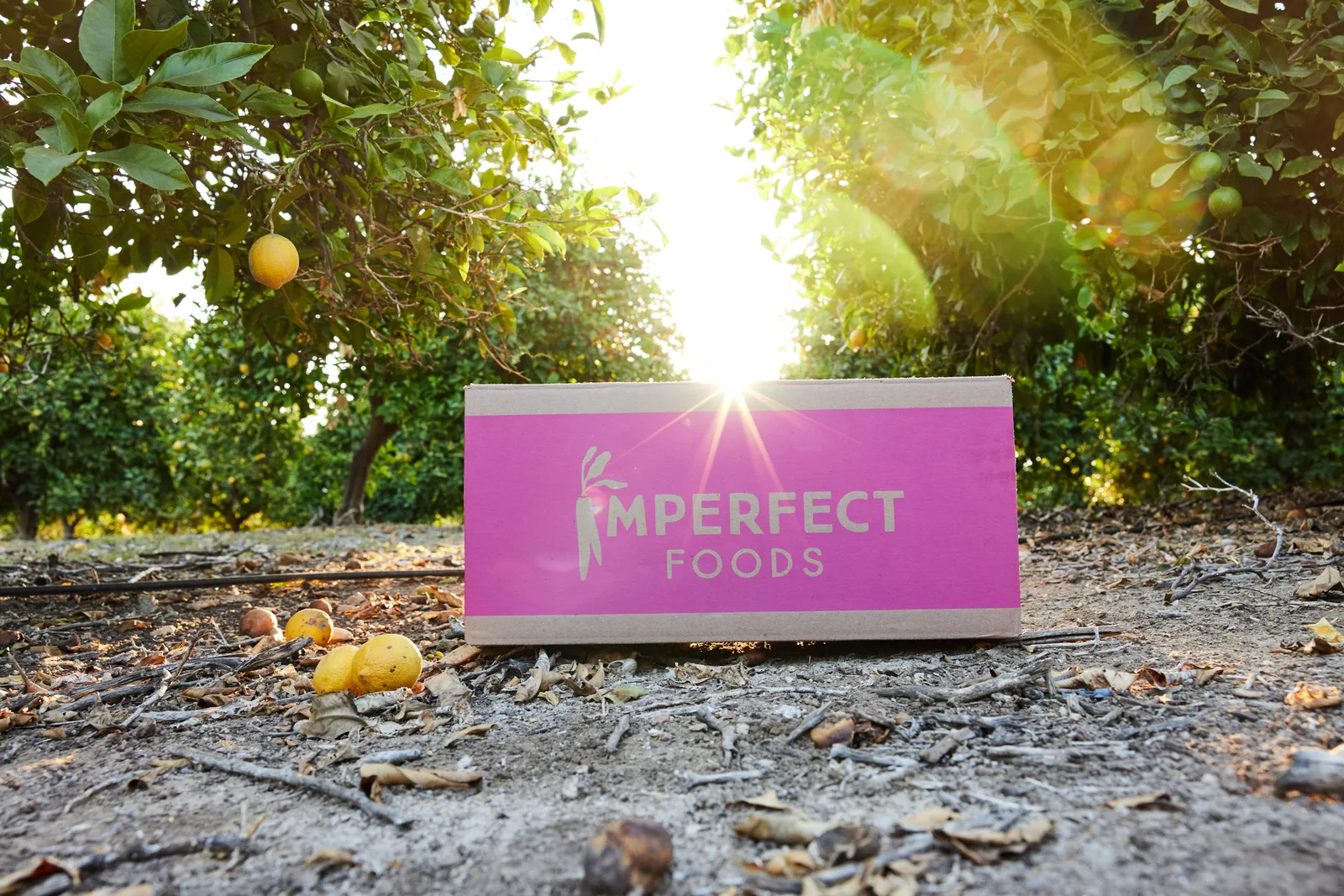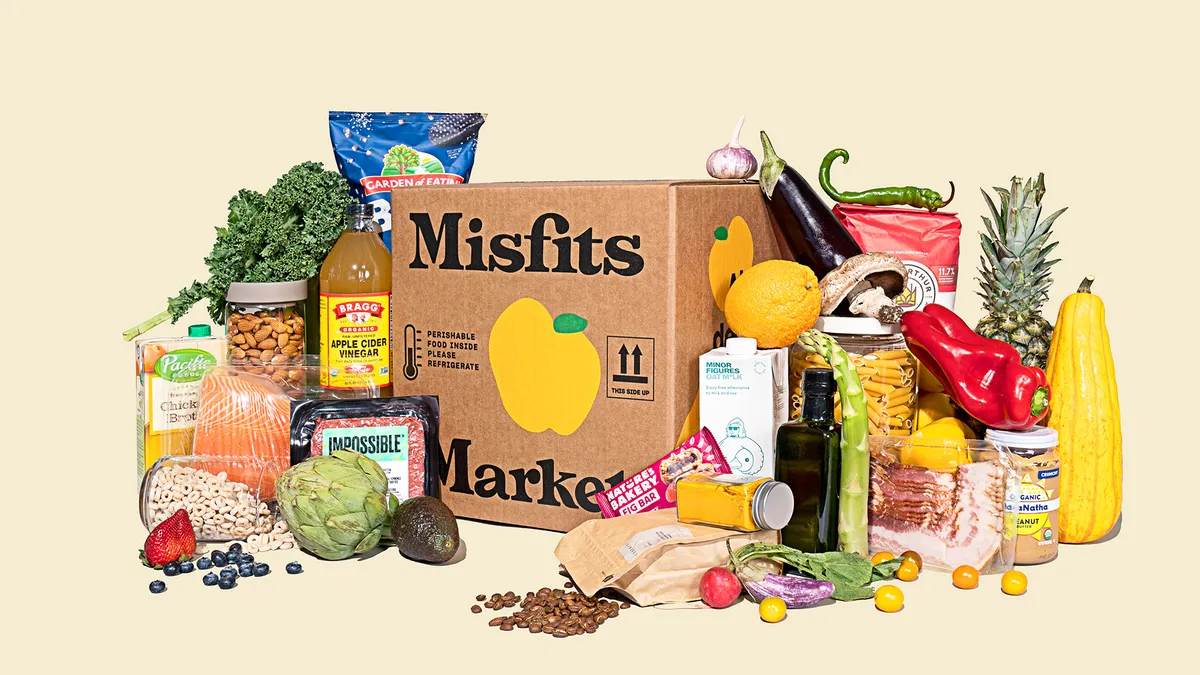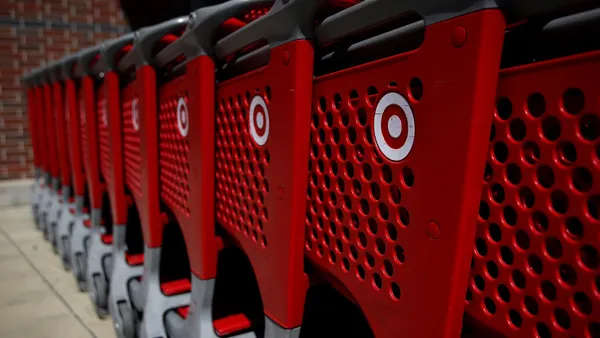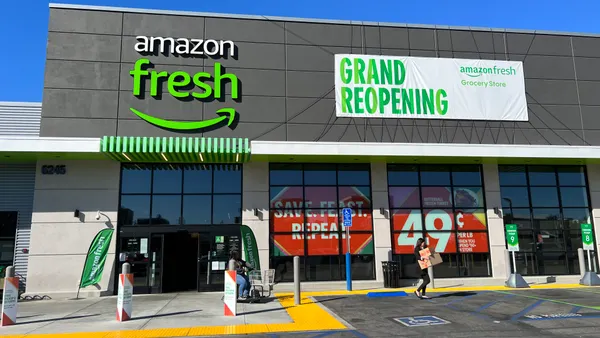Dive Brief:
- Misfits Market announced Wednesday that it plans to acquire fellow online grocer Imperfect Foods. Financial terms of the deal were not disclosed.
- The brands will continue to run separately in the short term, but eventually look to combine under one label, Misfits Market founder and CEO Abi Ramesh said in an interview. Ramesh will be CEO of the combined companies, while executives from Imperfect Foods will join the Misfits leadership team.
- Ramesh said the deal puts the combined companies on track to eclipse $1 billion in sales and become profitable by early 2024.
Dive Insight:
The e-grocery acquisition combines two companies with very similar sustainability-focused brands and growth narratives.
Both Misfits Market and Imperfect Foods were established as outlets specializing in misshapen produce that would otherwise get thrown out. In recent years, both have expanded their assortment to include fresh foods like meat, seafood and milk as well as grocery products. Both companies also operate their own private label lines.
Ramesh said the overlap in mission, audience and brand positioning as well as the ability to scale operations factored into acquisition.
“We think there's an opportunity through this combination for us to be a true standalone, sustainable online grocery store at a scale that doesn't exist today,” he said.
Surface-level similarities aside, the companies’ operations complement each other in key ways, Ramesh said. While Misfits relies on third-party companies to deliver its groceries, Imperfect Foods owns its network of more than 450 delivery vans. That gives the latter more control over delivery schedules and the customer experience, said Ramesh. He said the combined companies will look to meld Imperfect’s first-party delivery fleet with Misfits’ third-party logistics network.
“[Owned delivery] is a very hard mechanism to go out and build and replicate,” Ramesh said. “They've built that institutional knowledge over the past few years and as a result of that, they control the last mile experience for the customer.”

Imperfect Foods’ business skews toward urban neighborhoods and the company has a distribution network built to service those markets, while Misfits Market focuses more on suburban and rural markets, Ramesh said.
He said Misfits Markets will also look to gain from Imperfect Foods’ expertise in brand building. The latter company established its private label line three years ago and has more than 100 products in its lineup, whereas Misfits made the same move just this year with the launch of Odds & Ends.
Misfits Market currently delivers to 48 states while Imperfect Foods delivers primarily to markets along the West and East coasts and in the South, along with the Upper Midwest.
The combination promises to boost coverage and negotiating power with brands while also improving efficiency for both companies. The move comes as demand for grocery delivery has eased off as shoppers return to stores and inflation has constricted their spending. Demand is still growing at a healthy clip, however: Delivery sales totaled $3 billion in July, according to research from Brick Meets Click, up from $2.4 billion during the same month last year.
E-grocers have struggled to make headway against the many brick-and-mortar retailers that are also expanding their online grocery platforms. Earlier this month, Ahold Delhaize-owned FreshDirect made its last deliveries in the Philadelphia and Washington, D.C., markets as it pulled back to focus on the New York City area. Similarly, Farmstead recently pared back its service area to focus on its hometown of San Francisco.














